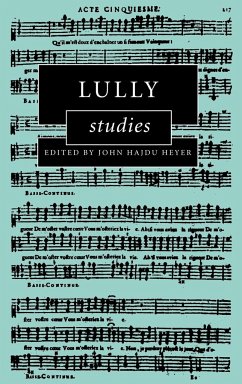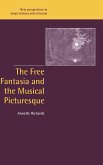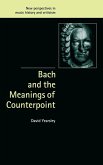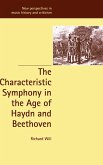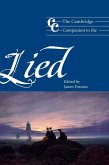The historical importance of composer Jean-Baptiste Lully has long been recognised. Regarded as the founder of French opera, as the embodiment of Baroque musical style and a key figure in the development of court ballet, his work enjoys growing popular and scholarly interest. This volume presents the best recent research on Lully's life, his work and his influence. Eleven essays by American and European scholars address a wide range of topics including Lully's genealogy, the Tragédie Lyrique, Lully's Palais Royal theatre, the collaboration with Molière, the transmission of Lully's work away from the Ile-de-France, and an unexplored link with Marcel Proust. Illustrated with musical examples and photographs, the volume also contains surprising archival discoveries about the composer's early life in Tuscany and new information about his manuscript sources. It will interest all those involved in the music of Lully and his time, whether musicologists, historians, performers or listeners.
Table of contents:
Introduction James R. Anthony; 1. Lully's Tuscan family Jérôme de la Gorce; 2. Lully plays deaf: rereading the evidence on his privilege Patricia Ranum; 3. The phrase structures of Lully's dance music Rebecca Harris-Warrick; 4. Quinault's libretto for Isis: new directions for the Tragédie Lyrique Buford Norman; 5. The articulation of Lully's dramatic dialogue Lois Rosow; 6. The Amsterdam editions of Jean-Baptiste Lully's music: a bibliographical scrutiny with commentary Carl B. Schmidt; 7. 'Pourquoi toujours des bergers?' Molière, Lully, and the pastoral divertissement John S. Powell; 8. The presentation of Lully's Alceste at the Académie de Musique of Strasbourg Catherine Cessac; 9. Walking through Lully's opera theatre in the Palais Royal Barbara Coeyman; 10. Gluck and Lully Herbert Schneider; 11. Jules Écorcheville's genealogical study of the Lully family and its influence on Marcel Proust Manuel Couvreur.
Leading scholars from America and Europe present the best recent research on the life and work of Baroque composer Jean-Baptiste Lully. The volume is richly illustrated with musical examples and photographs and contains surprising archival discoveries about the composer's early life and important new information about his manuscript sources.
Presents the best recent research on the life and work of Baroque composer Jean-Baptiste Lully.
Hinweis: Dieser Artikel kann nur an eine deutsche Lieferadresse ausgeliefert werden.
Table of contents:
Introduction James R. Anthony; 1. Lully's Tuscan family Jérôme de la Gorce; 2. Lully plays deaf: rereading the evidence on his privilege Patricia Ranum; 3. The phrase structures of Lully's dance music Rebecca Harris-Warrick; 4. Quinault's libretto for Isis: new directions for the Tragédie Lyrique Buford Norman; 5. The articulation of Lully's dramatic dialogue Lois Rosow; 6. The Amsterdam editions of Jean-Baptiste Lully's music: a bibliographical scrutiny with commentary Carl B. Schmidt; 7. 'Pourquoi toujours des bergers?' Molière, Lully, and the pastoral divertissement John S. Powell; 8. The presentation of Lully's Alceste at the Académie de Musique of Strasbourg Catherine Cessac; 9. Walking through Lully's opera theatre in the Palais Royal Barbara Coeyman; 10. Gluck and Lully Herbert Schneider; 11. Jules Écorcheville's genealogical study of the Lully family and its influence on Marcel Proust Manuel Couvreur.
Leading scholars from America and Europe present the best recent research on the life and work of Baroque composer Jean-Baptiste Lully. The volume is richly illustrated with musical examples and photographs and contains surprising archival discoveries about the composer's early life and important new information about his manuscript sources.
Presents the best recent research on the life and work of Baroque composer Jean-Baptiste Lully.
Hinweis: Dieser Artikel kann nur an eine deutsche Lieferadresse ausgeliefert werden.

